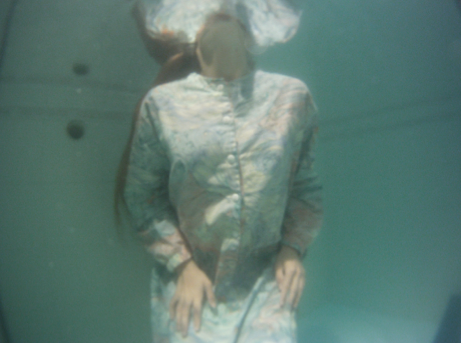Pamela S. Nadell
Challenging Sexist Conversion Practices
 Even before Jews around the world began reeling from the scandalous case of Barry Freundel, an Orthodox rabbi in Washington D.C. who secretly and frequently videotaped women immersing naked in the mikveh next to his synagogue, a bold Orthodox independent filmmaker, Nurit Jacobs-Yinon, was exposing another case of abuse of rabbinic power and the mikveh in Israel. Five years ago, she was stunned to see an ad seeking religious men to serve on a Beit Din, the court of three required to certify women’s conversions at the mikveh. An Israeli feminist, Jacobs-Yinon knew little about what women faced as they went through conversion’s final step of ritual immersion. But with Israeli law making it impossible for immigrants, like those from the former Soviet Union,to marry unless they could prove Jewish descent on their mother’s side or undergo conversion, she realized the significance of this issue even for secular Israelis. An estimated 75 percent of converts are female, and typically those certifying their mikveh immersion are male.
Even before Jews around the world began reeling from the scandalous case of Barry Freundel, an Orthodox rabbi in Washington D.C. who secretly and frequently videotaped women immersing naked in the mikveh next to his synagogue, a bold Orthodox independent filmmaker, Nurit Jacobs-Yinon, was exposing another case of abuse of rabbinic power and the mikveh in Israel. Five years ago, she was stunned to see an ad seeking religious men to serve on a Beit Din, the court of three required to certify women’s conversions at the mikveh. An Israeli feminist, Jacobs-Yinon knew little about what women faced as they went through conversion’s final step of ritual immersion. But with Israeli law making it impossible for immigrants, like those from the former Soviet Union,to marry unless they could prove Jewish descent on their mother’s side or undergo conversion, she realized the significance of this issue even for secular Israelis. An estimated 75 percent of converts are female, and typically those certifying their mikveh immersion are male.
What Jacobs-Yinon discovered — the violation of female converts’ dignity and modesty as the women, shielded only by a robe, held up by the female mikveh attendant, immersed before the men — shocked and angered her. It led her to create the film “A Tale of a Woman and a Robe: Ritual Immersion of Female Converts” and to invitations to testify in the Knesset.
“A Tale of a Woman and a Robe” began as a video installation, part of a 2013 exhibition at Tel Aviv’s Artist’s House. It was followed by the publication of an illustrated catalog in Hebrew and English in which scholars Rabbanit Dr. Michal Tikochinsky and MK Dr. Aliza Lavie cite midrash Bereshit Rabbah (VaYeshev 84:4) — “Abraham would convert the men, and Sarah, the women” — proving that, in the past, men of the court had delegated women to certify that a convert immersed as a gentile and emerged as a Jew. In the film we meet three male rabbis who concede, with varying degrees of empathy, that the current practice humiliates the women who are converting — but, shrugging, they claim they cannot change the system.
We also meet a convert whose eyes brim with tears as she remembers. Because Jewish law requires the mikveh waters to touch every part of the woman’s body, converts immerse before the female mikveh attendant completely naked. Then they put on a robe. But, in this instance, the men entered the mikveh before the woman had donned her robe, and they just stared.
In June, Jacobs-Yinon, one of a growing coterie of Israeli Orthodox female filmmakers, presented her film at the JCC Manhattan and in a private screening in Washington. She challenges us to raise our voices and demand that Israel’s chief rabbinate rule that only women certify the ritual immersion of women.
To preview “A Woman and a Robe,” visit www.movie-discovery.com.
For information about Nurit Jacobs-Yinon’s other films, visit www.aluma-films.com.
 Please wait...
Please wait...